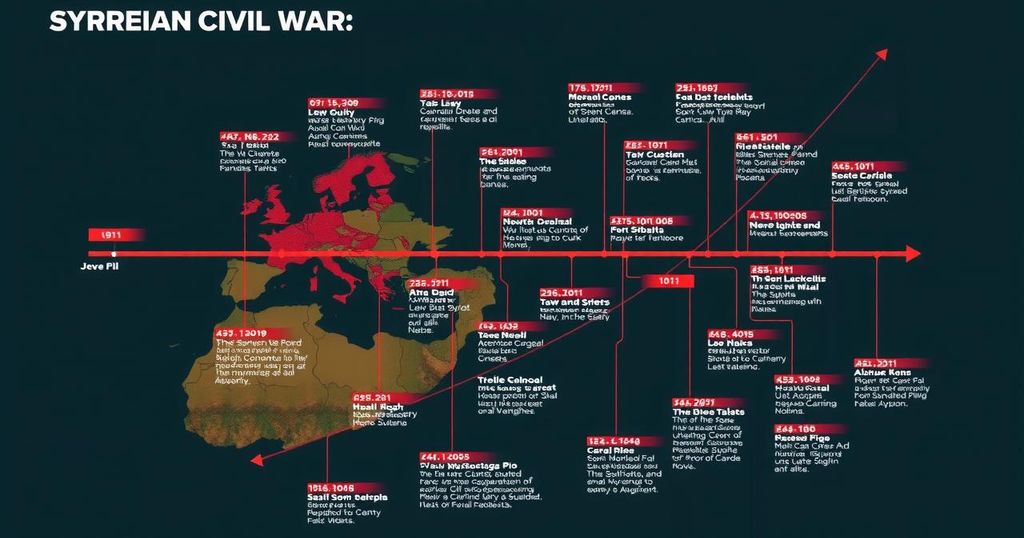The Syrian Civil War, initiated in February 2011, is a complex conflict that arose from public protests against the Assad regime. It has escalated into a multifaceted civil war involving various factions and foreign nations, resulting in widespread humanitarian crises and ongoing violence marked by severe human rights violations and geopolitical tensions.
The Syrian Civil War is an ongoing conflict that began in February 2011, rooted in a context of widespread pro-democracy protests amidst the broader Arab Spring. Initially, citizens sought to counter the authoritarian regime of President Bashar al-Assad, whose family has ruled since 1971. The initial protests expanded significantly as the government employed severe violence to quash dissent, resulting in the formation of various opposition militias by 2012, marking the escalation into a full-scale civil war. The primary participants in this conflict include the Free Syrian Army and the Islamic State in Iraq and the Levant, with pivotal involvement from external powers like Russia and Iran supporting Assad, while Western nations have generally favored opposition forces. The war has had devastating humanitarian consequences, leading to a severe refugee crisis and widespread civilian suffering. The conflict has also been marked by significant and tragic human rights violations, including the use of chemical weapons by the Assad regime, which has drawn international condemnation. The war continues to be characterized by intense sectarian divisions, complicating the pathways to a peaceful resolution. Furthermore, as geopolitical interests play into the conflict, external military and political dynamics further entrench the violence, thereby prolonging a resolution to the war. In essence, the Syrian Civil War represents not only a national rebellion against authoritarian rule but also a complex intersection of local, regional, and global interests that continue to impact the trajectory of the conflict.
The Syrian Civil War emerged from the larger Arab Spring movement, which saw various uprisings against authoritarian regimes across the Arab world. The conflict began following discontent with the long-standing rule of the Assad family, compounded by economic struggles and social inequality. Additionally, environmental challenges, particularly a severe drought leading up to the protests, exacerbated societal tensions, contributing to unrest. The regime’s violent repression of initial demonstrations escalated protests into armed confrontations, thereby expanding the conflict. As the civil war progressed, it attracted international involvement, with various nations taking sides based on political alignments and interests, thereby intensifying the complexity of the situation in Syria.
In summary, the Syrian Civil War has transcended a mere internal conflict to encompass a humanitarian disaster with extensive global implications. The origins of the conflict reflect deep-rooted grievances against authoritarianism, economic mismanagement, and a lack of political freedoms, further exacerbated by external interventions and sectarian divisions. Resolving this multifaceted conflict remains a significant challenge, as political, humanitarian, and military dynamics continue to evolve.
Original Source: www.britannica.com






